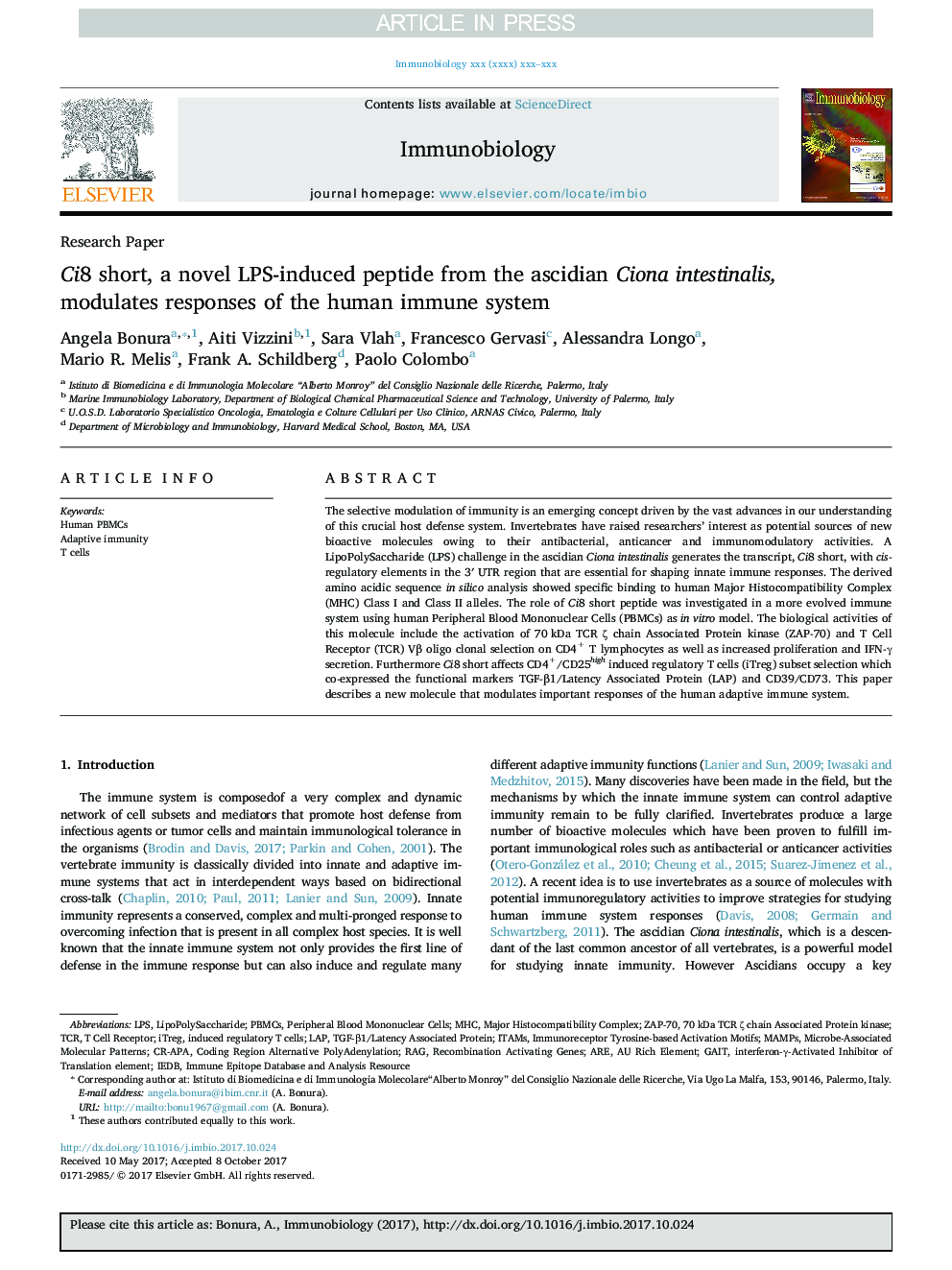| Article ID | Journal | Published Year | Pages | File Type |
|---|---|---|---|---|
| 8472074 | Immunobiology | 2018 | 10 Pages |
Abstract
The selective modulation of immunity is an emerging concept driven by the vast advances in our understanding of this crucial host defense system. Invertebrates have raised researchers' interest as potential sources of new bioactive molecules owing to their antibacterial, anticancer and immunomodulatory activities. A LipoPolySaccharide (LPS) challenge in the ascidian Ciona intestinalis generates the transcript, Ci8 short, with cis-regulatory elements in the 3ⲠUTR region that are essential for shaping innate immune responses. The derived amino acidic sequence in silico analysis showed specific binding to human Major Histocompatibility Complex (MHC) Class I and Class II alleles. The role of Ci8 short peptide was investigated in a more evolved immune system using human Peripheral Blood Mononuclear Cells (PBMCs) as in vitro model. The biological activities of this molecule include the activation of 70 kDa TCR ζ chain Associated Protein kinase (ZAP-70) and T Cell Receptor (TCR) Vβ oligo clonal selection on CD4+ T lymphocytes as well as increased proliferation and IFN-γ secretion. Furthermore Ci8 short affects CD4+/CD25high induced regulatory T cells (iTreg) subset selection which co-expressed the functional markers TGF-β1/Latency Associated Protein (LAP) and CD39/CD73. This paper describes a new molecule that modulates important responses of the human adaptive immune system.
Keywords
PBMCsiTregRAGinduced regulatory T cellsZAP-70ITAMsLAPIEDBTCrHuman PBMCsLPSmicrobe-associated molecular patternsadaptive immunitygaitimmunoreceptor tyrosine-based activation motifsperipheral blood mononuclear cellsT cellslipopolysaccharideMAMPSmajor histocompatibility complexMHCARERecombination activating genesT cell receptor
Related Topics
Life Sciences
Biochemistry, Genetics and Molecular Biology
Cell Biology
Authors
Angela Bonura, Aiti Vizzini, Sara Vlah, Francesco Gervasi, Alessandra Longo, Mario R. Melis, Frank A. Schildberg, Paolo Colombo,
